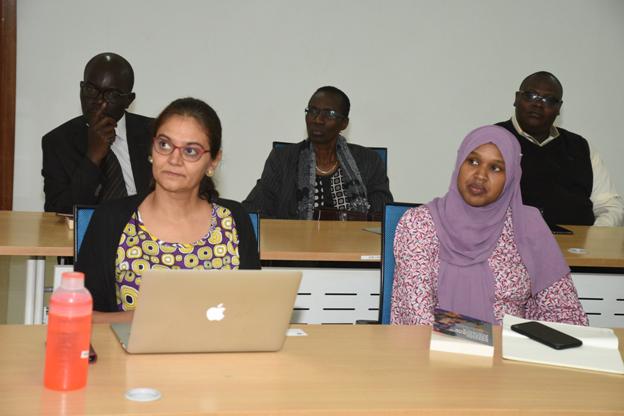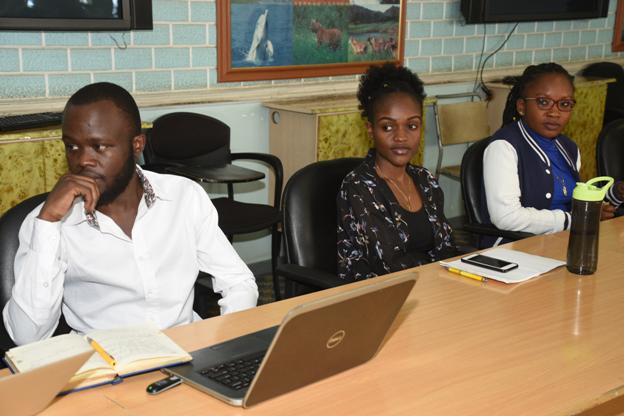Staff and Students Experience on Online Teaching and Examinations
It was a pandemonium when Corona Virus disease landed in China, Europe, America and eventually in Africa. Confusion reigned supreme as virtually everything came to a standstill. All large gatherings were stopped immediately, learning institutions and churches were closed as lockdowns become the order of the day. The air of confusion was thick; you could cut it with a razor blade.
Following the closure of all learning institutions, the University of Nairobi Vice Chancellor, Prof. Stephen Kiama commissioned the ICT Centre to champion online teaching across the university. This was done successfully across all schools and institutes within the university. Within two weeks, the whole university had transitioned to online teaching, to enable the lecturers complete the syllabus.
According to Prof. Karuti Kanyinga, Director, Institute for Development Studies (IDS) the online teaching has been very successful. They have been able to transition seamlessly from the brick and mortar classroom learning to online teaching and learning. He attributes the success of the online classes to the Institute having graduate students who were keen on finishing their courses within academic calendar.

Dr. Radha Upadhyaya, a Lecturer from the IDS opines that the online teaching has been very effective. As an Institute, they have been able to conduct the lectures online and even invite guest Lecturers from other countries especially Europe to deliver lectures. “I have been able to invite guest Lecturers from the United Kingdom and other parts of the world”, she says. According to her, the only drawback to online teaching is lack of human touch. “I miss the one on one human touch, you miss the human interaction with your students,” she says.
Dr. Joseph Onjala, a Lecturer from IDS attributes the success of online teaching to visionary leadership, the fast response by the University of Nairobi to go online, the quick adoption of technology by the staff and the students and the teamwork among IDS staff and students.
Many schools and institutes have been successful in conducting online teaching and upon finishing their courses, they embarked on online examinations. University of Nairobi Senate approved online examinations in May, 2020 and since then several schools and institutes have been progressing very well with exams, mostly adopting open book examination system.
Thanks to development in technology and tools like Google Classroom, Zoom, Microsoft Teams and Cisco Webex, university operations like teaching and learning has not been stopped. They have just shifted online. It is not only the university staff and students who are enjoying the benefits of online classes, the University leadership has been holding its meetings regularly, courtesy of video conferencing tools. Prof. Kiama opines that he is able to meet other Vice Chancellors across Africa and Europe on a regular basis to share insights, on how best to manage the universities during the COVID19 pandemic which appears to have no end in sight.
Elizabeth Kimkung, a PhD student from CASELAP observes that the online classes have lots of conveniences. “We don’t have to come to class physically as the classes are conducted online. We have been able to avoid unnecessary traffic. Secondly, the classes can be recorded and hence you can replay the recorded video classes a number of times”, she said. Her sentiments were shared by Evalyne Mutuku and Victor Onyango, who are students from IDS. Justice Oscar Angote, a PhD student from CASELAP agreed that he has been able to achieve a lot after the commencement of the online teaching by avoiding unnecessary travels to Nairobi to attend classes since he works outside the capital city.
Going forward, students are urging the University Administration to permanently consider entrenching online teaching and examinations. The advantages and the conveniences of online teaching are too sweet to resist. The students are happy with the new normal and are hesitant to resume to traditional brick and mortar classes. Despite a few challenges that come with internet access, the students are happy to embrace online teaching and examinations going into the future.

